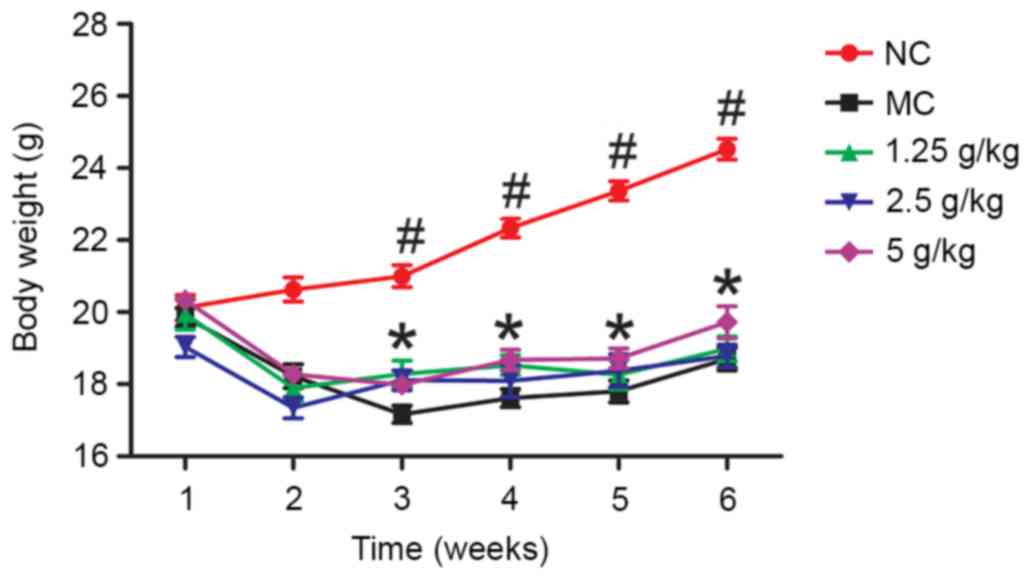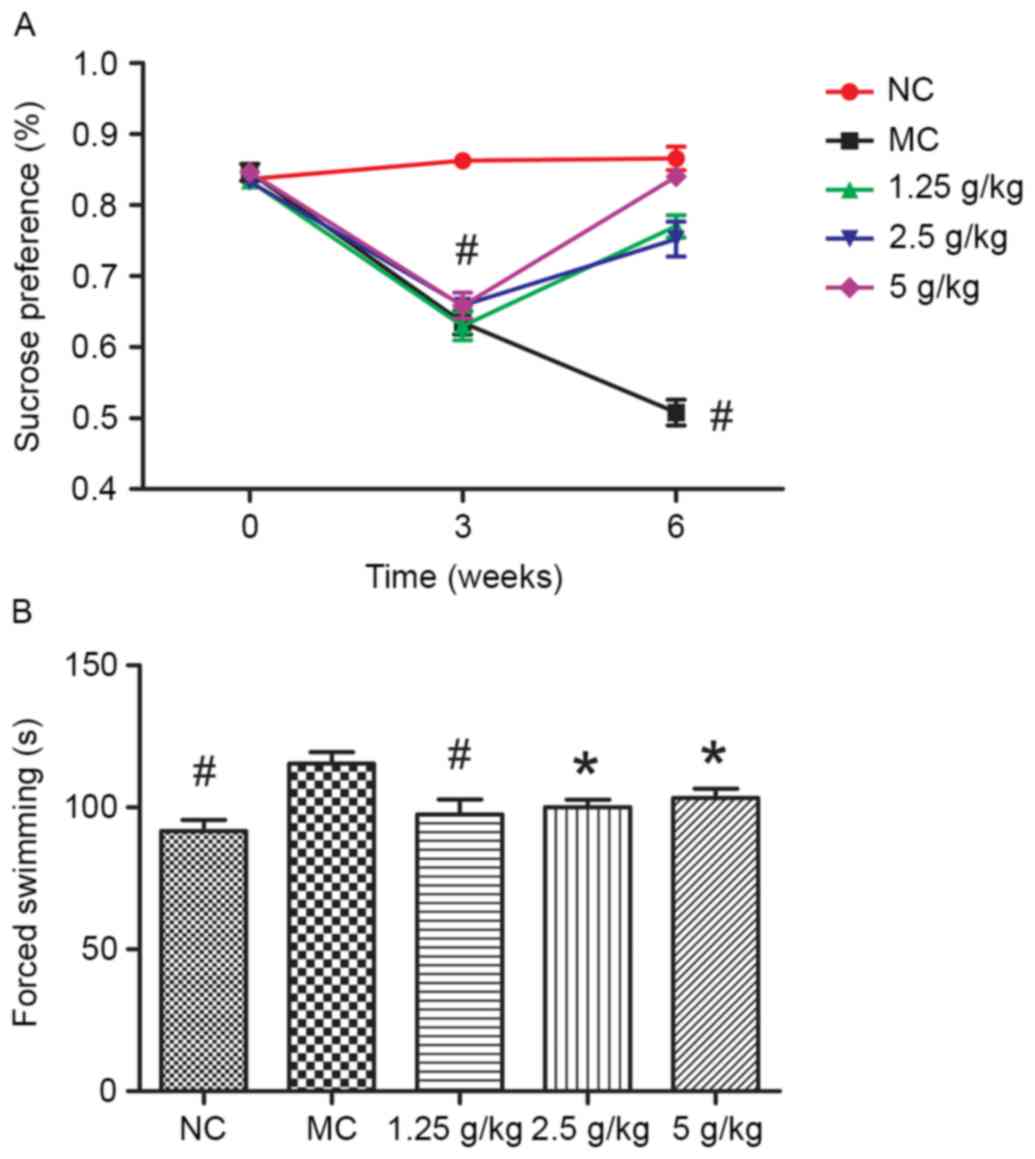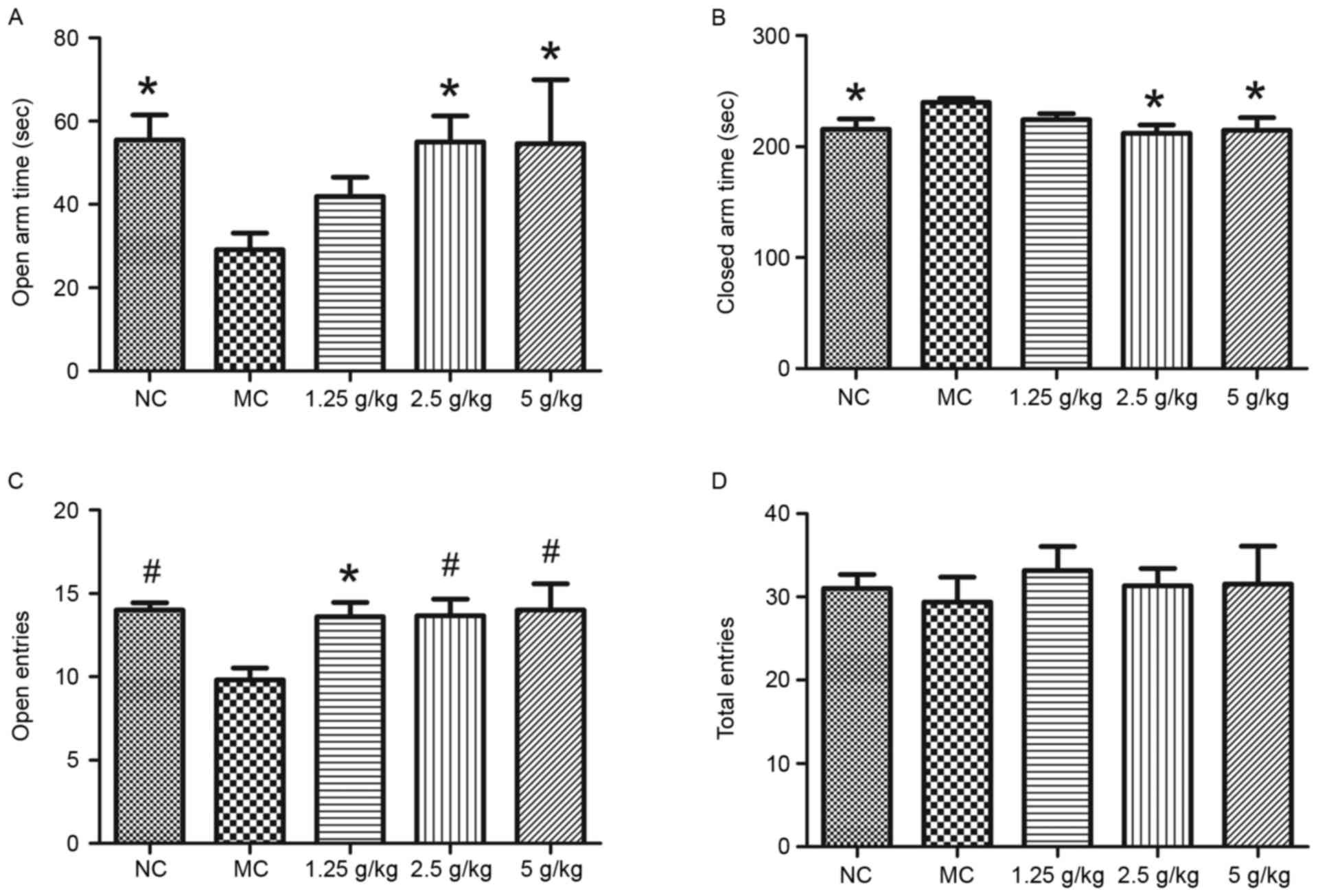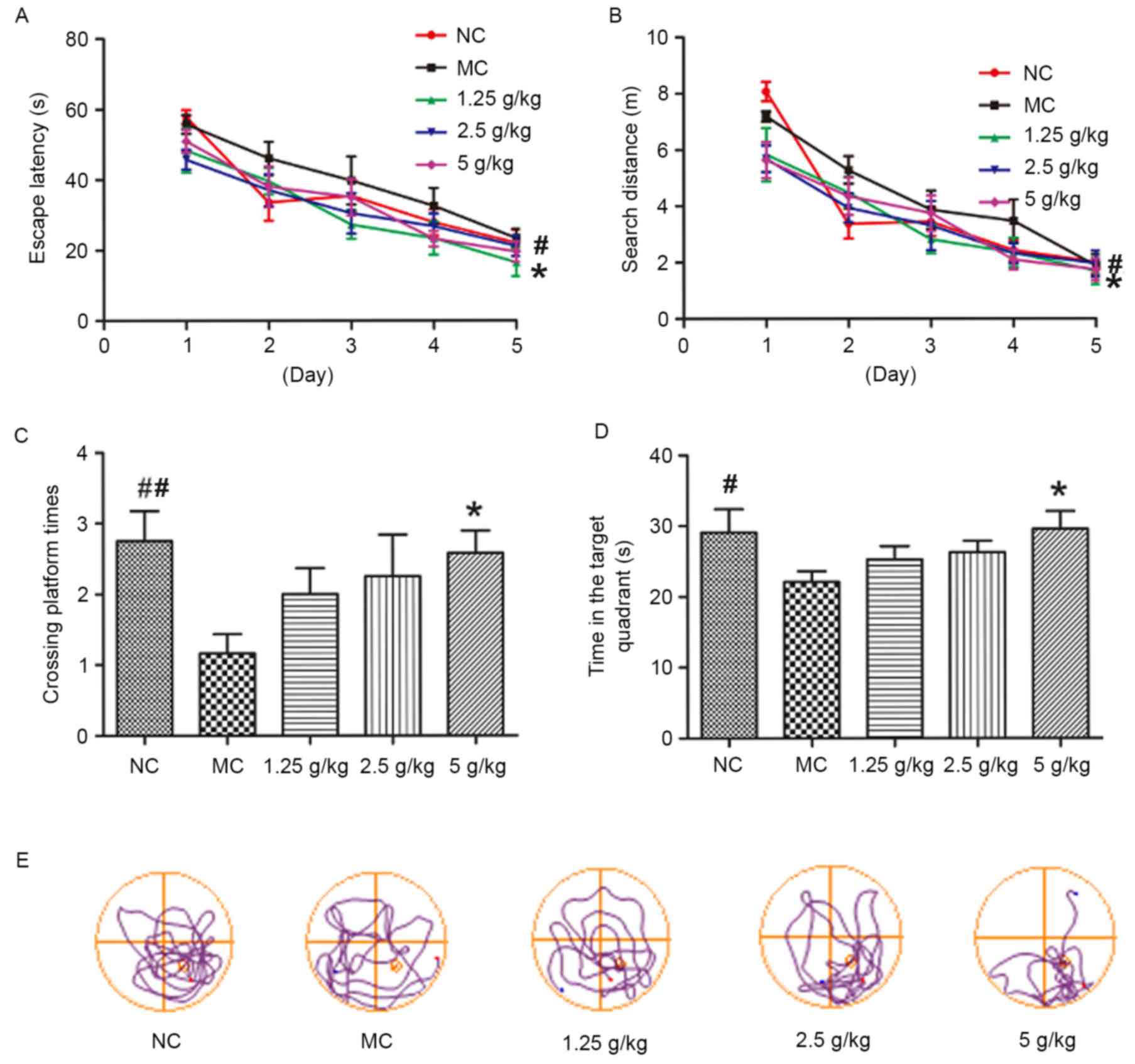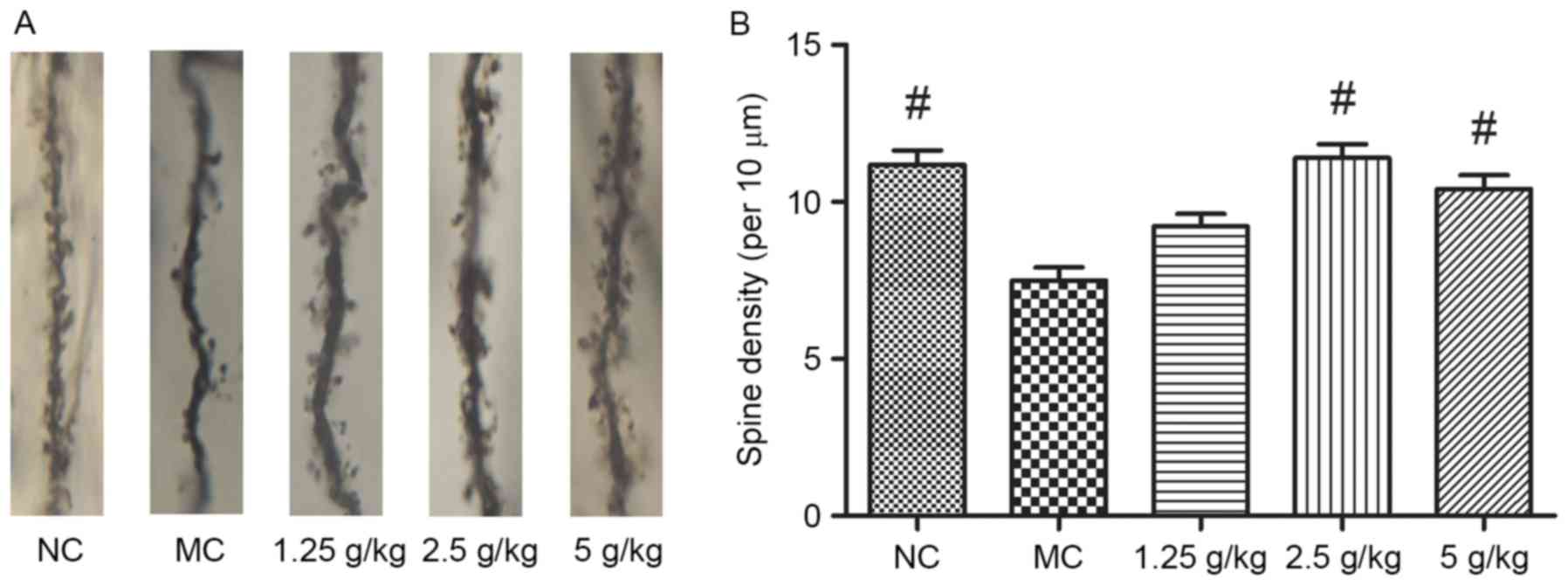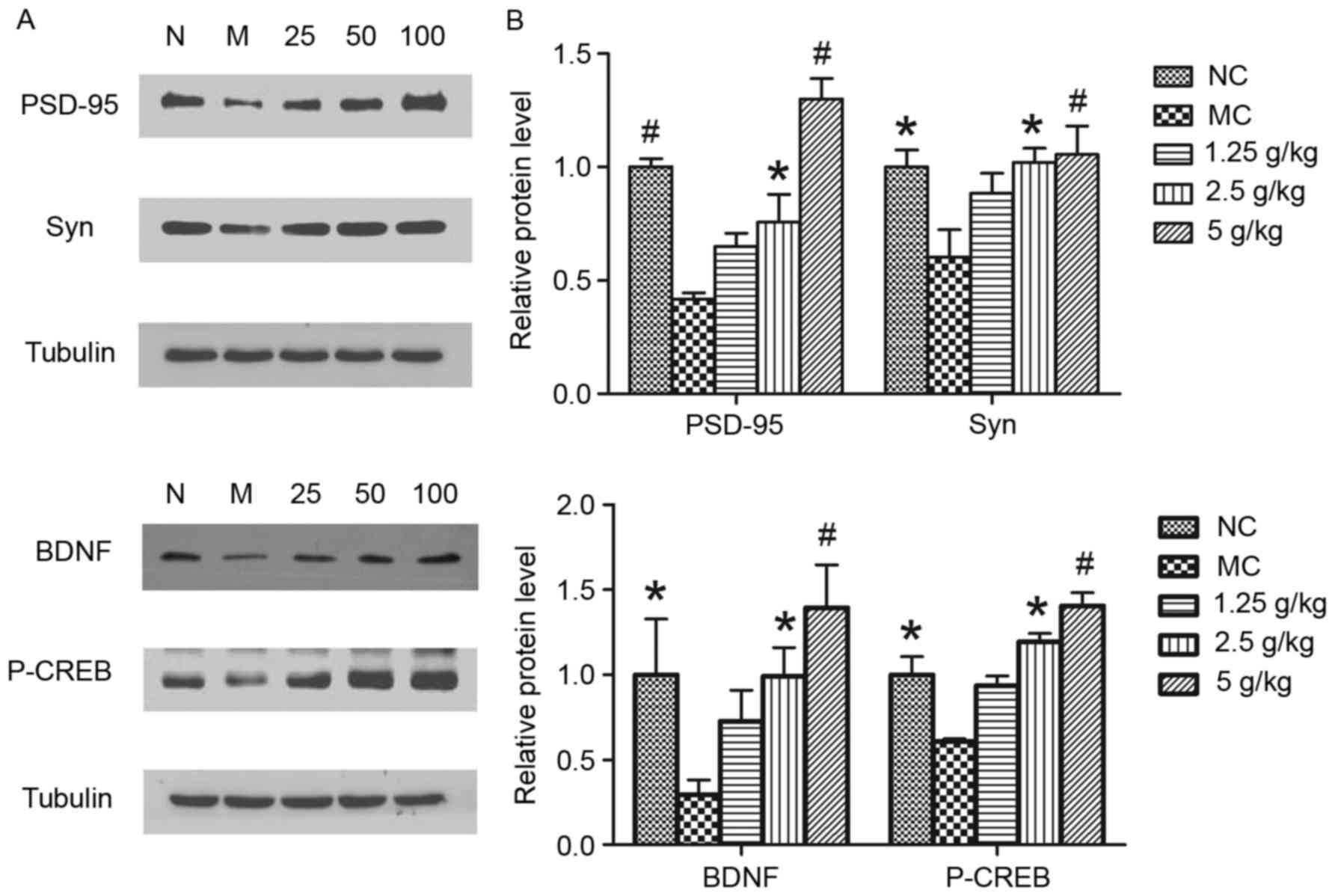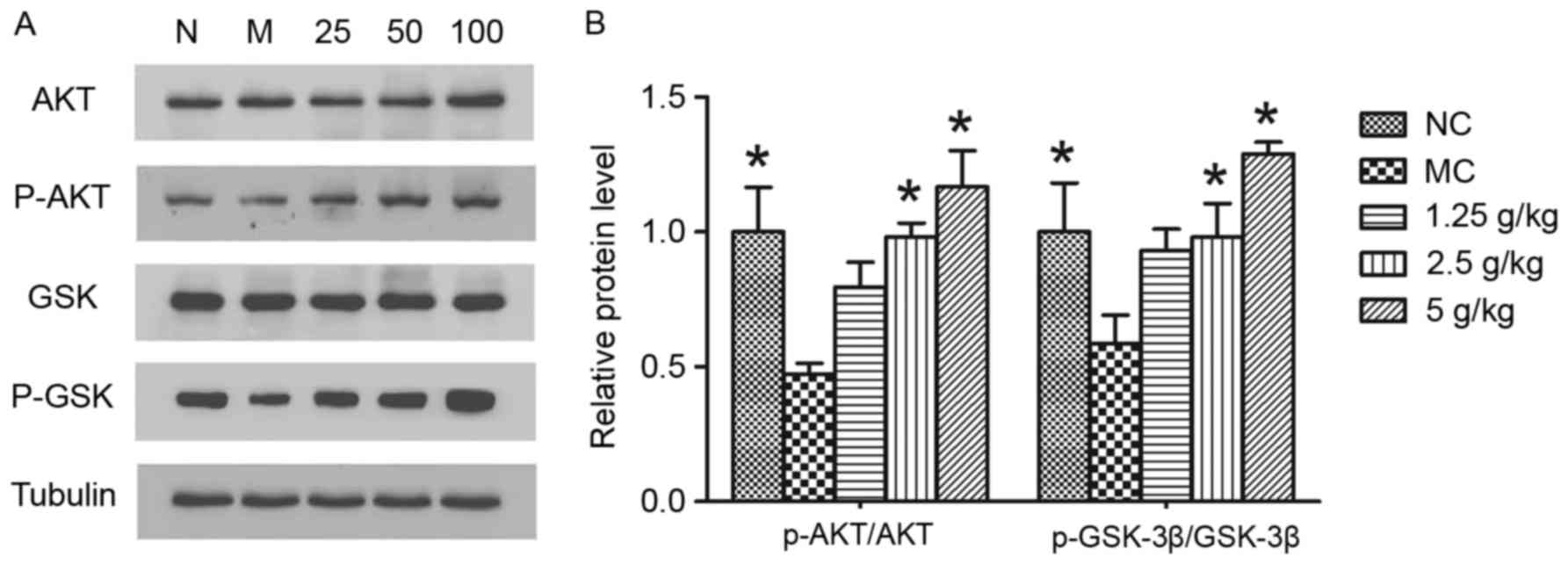|
1
|
Aldao A, Mennin DS, Linardatos E and
Fresco DM: Differential patterns of physical symptoms and
subjective processes in generalized anxiety disorder and unipolar
depression. J Anxiety Disord. 24:250–259. 2010. View Article : Google Scholar : PubMed/NCBI
|
|
2
|
Trivedi MH, Rush AJ, Wisniewski SR,
Nierenberg AA, Warden D, Ritz L, Norquist G, Howland RH, Lebowitz
B, McGrath PJ, et al: Evaluation of outcomes with citalopram for
depression using measurement-based care in STAR*D: Implications for
clinical practice. Am J Psychiatry. 163:28–40. 2006. View Article : Google Scholar : PubMed/NCBI
|
|
3
|
Rotheneichner P, Lange S, O'Sullivan A,
Marschallinger J, Zaunmair P, Geretsegger C, Aigner L and
Couillard-Despres S: Hippocampal neurogenesis and antidepressive
therapy: Shocking relations. Neural Plast. 2014:7239152014.
View Article : Google Scholar : PubMed/NCBI
|
|
4
|
Duman RS and Aghajanian GK: Synaptic
dysfunction in depression: Potential therapeutic targets. Science.
338:68–72. 2012. View Article : Google Scholar : PubMed/NCBI
|
|
5
|
Wainwright SR and Galea LA: The neural
plasticity theory of depression: Assessing the roles of adult
neurogenesis and PSA-NCAM within the hippocampus. Neural Plast.
2013:8054972013. View Article : Google Scholar : PubMed/NCBI
|
|
6
|
Masi G and Brovedani P: The hippocampus,
neurotrophic factors and depression: Possible implications for the
pharmacotherapy of depression. CNS Drugs. 25:913–931. 2011.
View Article : Google Scholar : PubMed/NCBI
|
|
7
|
Erickson KI, Miller DL and Roecklein KA:
The aging hippocampus: Interactions between exercise, depression,
and BDNF. Neuroscientist. 18:82–97. 2012. View Article : Google Scholar : PubMed/NCBI
|
|
8
|
Yoshii A and Constantine-Paton M:
Postsynaptic BDNF-TrkB signaling in synapse maturation, plasticity,
and disease. Dev Neurobiol. 70:304–322. 2010.PubMed/NCBI
|
|
9
|
Lipsky RH and Marini AM: Brain-derived
neurotrophic factor in neuronal survival and behavior-related
plasticity. Ann NY Acad Sci. 1122:130–143. 2007. View Article : Google Scholar : PubMed/NCBI
|
|
10
|
Schmidt HD and Duman RS: The role of
neurotrophic factors in adult hippocampal neurogenesis,
antidepressant treatments and animal models of depressive-like
behavior. Behav Pharmacol. 18:391–418. 2007. View Article : Google Scholar : PubMed/NCBI
|
|
11
|
Castrén E, Võikar V and Rantamäki T: Role
of neurotrophic factors in depression. Curr Opin Pharmacol.
7:18–21. 2007. View Article : Google Scholar : PubMed/NCBI
|
|
12
|
Aydemir C, Yalcin ES, Aksaray S, Kisa C,
Yildirim SG, Uzbay T and Goka E: Brain-derived neurotrophic factor
(BDNF) changes in the serum of depressed women. Prog
Neuropsychopharmacol Biol Psychiatry. 30:1256–1260. 2006.
View Article : Google Scholar : PubMed/NCBI
|
|
13
|
Hritcu L and Gorgan LD: Intranigral
lipopolysaccharide induced anxiety and depression by altered BDNF
mRNA expression in rat hippocampus. Prog Neuropsychopharmacol Biol
Psychiatry. 51:126–132. 2014. View Article : Google Scholar : PubMed/NCBI
|
|
14
|
Musazzi L, Cattaneo A, Tardito D, Barbon
A, Gennarelli M, Barlati S, Racagni G and Popoli M: Early raise of
BDNF in hippocampus suggests induction of posttranscriptional
mechanisms by antidepressants. BMC Neurosci. 10:482009. View Article : Google Scholar : PubMed/NCBI
|
|
15
|
Bradley CA, Peineau S, Taghibiglou C,
Nicolas CS, Whitcomb DJ, Bortolotto ZA, Kaang BK, Cho K, Wang YT
and Collingridge GL: A pivotal role of GSK-3 in synaptic
plasticity. Front Mol Neurosci. 5:132012. View Article : Google Scholar : PubMed/NCBI
|
|
16
|
Liu W, Wang H, Wang Y, Li H and Ji L:
Metabolic factors-triggered inflammatory response drives
antidepressant effects of exercise in CUMS rats. Psychiatry Res.
228:257–264. 2015. View Article : Google Scholar : PubMed/NCBI
|
|
17
|
Klein PS and Melton DA: A molecular
mechanism for the effect of lithium on development. Proc Natl Acad
Sci USA. 93:pp. 8455–8459. 1996; View Article : Google Scholar : PubMed/NCBI
|
|
18
|
Kaidanovich-Beilin O, Milman A, Weizman A,
Pick CG and Eldar-Finkelman H: Rapid antidepressive-like activity
of specific glycogen synthase kinase-3 inhibitor and its effect on
beta-catenin in mouse hippocampus. Biol Psychiatry. 55:781–784.
2004. View Article : Google Scholar : PubMed/NCBI
|
|
19
|
Shapira M, Licht A, Milman A, Pick CG,
Shohami E and Eldar-Finkelman H: Role of glycogen synthase
kinase-3beta in early depressive behavior induced by mild traumatic
brain injury. Mol Cell Neurosci. 34:571–577. 2007. View Article : Google Scholar : PubMed/NCBI
|
|
20
|
Lao Y, Wang X, Xu N, Zhang H and Xu H:
Application of proteomics to determine the mechanism of action of
traditional Chinese medicine remedies. J Ethnopharmacol. 155:1–8.
2014. View Article : Google Scholar : PubMed/NCBI
|
|
21
|
Sun Y, Feng F and Yu X: Pharmacokinetics
of geniposide in Zhi-Zi-Hou-Pu decoction and in different
combinations of its constituent herbs. Phytother Res. 26:67–72.
2012. View
Article : Google Scholar : PubMed/NCBI
|
|
22
|
Li JM, Kong LD, Wang YM, Cheng CH, Zhang
WY and Tan WZ: Behavioral and biochemical studies on chronic mild
stress models in rats treated with a Chinese traditional
prescription Banxia-houpu decoction. Life Sci. 74:55–73. 2003.
View Article : Google Scholar : PubMed/NCBI
|
|
23
|
Ma Z, Ji W, Qu R, Wang M, Yang W, Zhan Z,
Fu Q and Ma S: Metabonomic study on the antidepressant-like effects
of banxia houpu decoction and its action mechanism. Evid Based
Complement Alternat Med. 2013:2137392013. View Article : Google Scholar : PubMed/NCBI
|
|
24
|
Willner P, Towell A, Sampson D, Sophokeous
S and Muscat R: Reduction of sucrose preference by chronic
unpredictable mild stress, and its restoration by a tricyclic
antidepressant. Psychopharmacology (Berl). 93:358–364. 1987.
View Article : Google Scholar : PubMed/NCBI
|
|
25
|
Grippo AJ, Beltz TG, Weiss RM and Johnson
AK: The effects of chronic fluoxetine treatment on chronic mild
stress-induced cardiovascular changes and anhedonia. Biol
Psychiatry. 59:309–316. 2006. View Article : Google Scholar : PubMed/NCBI
|
|
26
|
Benelli A, Filaferro M, Bertolini A and
Genedani S: Influence of S-adenosyl-L-methionine on chronic mild
stress-induced anhedonia in castrated rats. Br J Pharmacol.
127:645–654. 1999. View Article : Google Scholar : PubMed/NCBI
|
|
27
|
Forbes NF, Stewart CA, Matthews K and Reid
IC: Chronic mild stress and sucrose consumption: Validity as a
model of depression. Physiol Behav. 60:1481–1484. 1996. View Article : Google Scholar : PubMed/NCBI
|
|
28
|
Porsolt RD, Anton G, Blavet N and Jalfre
M: Behavioural despair in rats: A new model sensitive to
antidepressant treatments. Eur J Pharmacol. 47:379–391. 1978.
View Article : Google Scholar : PubMed/NCBI
|
|
29
|
Zomkowski AD, Engel D, Gabilan NH and
Rodrigues AL: Involvement of NMDA receptors and L-arginine-nitric
oxide-cyclic guanosine monophosphate pathway in the
antidepressant-like effects of escitalopram in the forced swimming
test. Eur Neuropsychopharmacol. 20:793–801. 2010. View Article : Google Scholar : PubMed/NCBI
|
|
30
|
Iwamoto Y, Morinobu S, Takahashi T and
Yamawaki S: Single prolonged stress increases contextual freezing
and the expression of glycine transporter 1 and vesicle-associated
membrane protein 2 mRNA in the hippocampus of rats. Prog
Neuropsychopharmacol Biol Psychiatry. 31:642–651. 2007. View Article : Google Scholar : PubMed/NCBI
|
|
31
|
Yu L, Wang S, Chen X, Yang H, Li X, Xu Y
and Zhu X: Orientin alleviates cognitive deficits and oxidative
stress in Aβ1-42-induced mouse model of Alzheimer's disease. Life
Sci. 121:104–109. 2015. View Article : Google Scholar : PubMed/NCBI
|
|
32
|
Ezzati A, Zimmerman ME, Katz MJ and Lipton
RB: Hippocampal correlates of depression in healthy elderly adults.
Hippocampus. 23:1137–1142. 2013. View Article : Google Scholar : PubMed/NCBI
|
|
33
|
Taylor WD, McQuoid DR, Payne ME, Zannas
AS, MacFall JR and Steffens DC: Hippocampus atrophy and the
longitudinal course of late-life depression. Am J Geriatr
Psychiatry. 22:1504–1512. 2014. View Article : Google Scholar : PubMed/NCBI
|
|
34
|
André C, Dinel AL, Ferreira G, Layé S and
Castanon N: Diet-induced obesity progressively alters cognition,
anxiety-like behavior and lipopolysaccharide-induced
depressive-like behavior: Focus on brain indoleamine
2,3-dioxygenase activation. Brain Behav Immun. 41:10–21. 2014.
View Article : Google Scholar : PubMed/NCBI
|
|
35
|
Lupien SJ, Nair NP, Brière S, Maheu F, Tu
MT, Lemay M, McEwen BS and Meaney MJ: Increased cortisol levels and
impaired cognition in human aging: Implication for depression and
dementia in later life. Rev Neurosci. 10:117–139. 1999. View Article : Google Scholar : PubMed/NCBI
|
|
36
|
Lucassen PJ, Stumpel MW, Wang Q and
Aronica E: Decreased numbers of progenitor cells but no response to
antidepressant drugs in the hippocampus of elderly depressed
patients. Neuropharmacology. 58:940–949. 2010. View Article : Google Scholar : PubMed/NCBI
|
|
37
|
Ampuero E, Rubio FJ, Falcon R, Sandoval M,
Diaz-Veliz G, Gonzalez RE, Earle N, Dagnino-Subiabre A, Aboitiz F,
Orrego F and Wyneken U: Chronic floxetine treatment induces
structural plasticity and selective changes in glutamate receptor
subunits in the rat cerebral cortex. Neuroscience. 169:98–108.
2010. View Article : Google Scholar : PubMed/NCBI
|
|
38
|
Tanti A and Belzung C: Neurogenesis along
the septo-temporal axis of the hippocampus: Are depression and the
action of antidepressants region-specific? Neuroscience.
252:234–252. 2013. View Article : Google Scholar : PubMed/NCBI
|
|
39
|
Rayen I, Gemmel M, Pauley G, Steinbusch HW
and Pawluski JL: Developmental exposure to SSRIs, in addition to
maternal stress, has long-term sex-dependent effects on hippocampal
plasticity. Psychopharmacology (Berl). 232:1231–1244. 2015.
View Article : Google Scholar : PubMed/NCBI
|
|
40
|
Luoni A, Macchi F, Papp M, Molteni R and
Riva MA: Lurasidone exerts antidepressant properties in the chronic
mild stress model through the regulation of synaptic and
neuroplastic mechanisms in the rat prefrontal cortex. Int J
Neuropsychopharmacol. 18(pii): pyu0612014.PubMed/NCBI
|
|
41
|
Li W, Liu L, Liu YY, Luo J, Lin JY, Li X,
Wang B and Min S: Effects of electroconvulsive stimulation on
long-term potentiation and synaptophysin in the hippocampus of rats
with depressive behavior. J ECT. 28:111–117. 2012. View Article : Google Scholar : PubMed/NCBI
|
|
42
|
Yulug B, Ozan E, Gönül AS and Kilic E:
Brain-derived neurotrophic factor, stress and depression: A
minireview. Brain Res Bull. 78:267–269. 2009. View Article : Google Scholar : PubMed/NCBI
|
|
43
|
Koch JM, Hinze-Selch D, Stingele K,
Huchzermeier C, Goder R, Seeck-Hirschner M and Aldenhoff JB:
Changes in CREB phosphorylation and BDNF plasma levels during
psychotherapy of depression. Psychother Psychosom. 78:187–192.
2009. View Article : Google Scholar : PubMed/NCBI
|
|
44
|
Pláteník J, Fišar Z, Buchal R, Jirák R,
Kitzlerová E, Zvěřová M and Raboch J: GSK-3β, CREB, and BDNF in
peripheral blood of patients with Alzheimers disease and
depression. Prog Neuropsychopharmacol Biol Psychiatry. 50:83–93.
2014. View Article : Google Scholar : PubMed/NCBI
|
|
45
|
Jope RS: Glycogen synthase kinase-3 in the
etiology and treatment of mood disorders. Front Mol Neurosci.
4:162011. View Article : Google Scholar : PubMed/NCBI
|
|
46
|
Jope RS and Johnson GV: The glamour and
gloom of glycogen synthase kinase-3. Trends Biochem Sci. 29:95–102.
2004. View Article : Google Scholar : PubMed/NCBI
|
|
47
|
Wada A: Lithium and neuropsychiatric
therapeutics: Neuroplasticity via glycogen synthase kinase-3beta,
beta-catenin, and neurotrophin cascades. J Pharmacol Sci.
110:14–28. 2009. View Article : Google Scholar : PubMed/NCBI
|
|
48
|
Zhang K, Song X, Xu Y, Li X, Liu P, Sun N,
Zhao X, Liu Z, Xie Z and Peng J: Continuous GSK-3β overexpression
in the hippocampal dentate gyrus induces prodepressant-like effects
and increases sensitivity to chronic mild stress in mice. J Affect
Disord. 146:45–52. 2013. View Article : Google Scholar : PubMed/NCBI
|
|
49
|
Silva R, Mesquita AR, Bessa J, Sousa JC,
Sotiropoulos I, Leão P, Almeida OF and Sousa N: Lithium blocks
stress-induced changes in depressive-like behavior and hippocampal
cell fate: The role of glycogen-synthase-kinase-3beta.
Neuroscience. 152:656–669. 2008. View Article : Google Scholar : PubMed/NCBI
|
|
50
|
Oh DH, Park YC and Kim SH: Increased
glycogen synthase kinase-3β mRNA level in the hippocampus of
patients with major depression: A study using the Stanley
neuropathology consortium integrative database. Psychiatry
Investig. 7:202–207. 2010. View Article : Google Scholar : PubMed/NCBI
|
|
51
|
Nayak G and Cooper GM: p53 is a major
component of the transcriptional and apoptotic program regulated by
PI3-kinase/Akt/GSK3 signaling. Cell Death Dis. 3:e4002012.
View Article : Google Scholar : PubMed/NCBI
|
|
52
|
Kitagishi Y, Kobayashi M, Kikuta K and
Matsuda S: Roles of PI3K/AKT/GSK-3/mTOR pathway in cell signaling
of mental illnesses. Depress Res Treat. 2012:7525632012.PubMed/NCBI
|
|
53
|
Pláteník J, Fišar Z, Buchal R, Jirák R,
Kitzlerová E, Zvěřová M and Raboch J: GSK3β, CREB, and BDNF in
peripheral blood of patients with Alzheimer's disease and
depression. Prog Neuropsychopharmacol Biol Psychiatry. 50:83–93.
2014. View Article : Google Scholar : PubMed/NCBI
|















